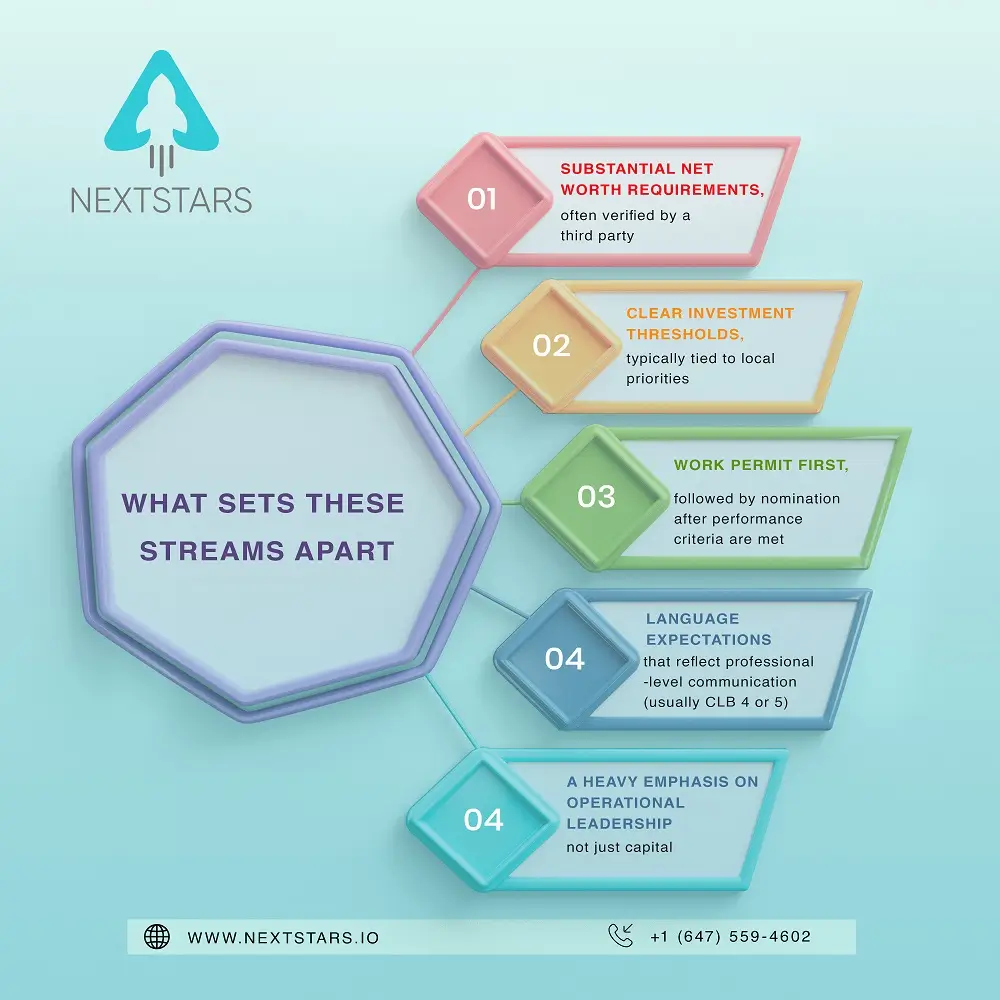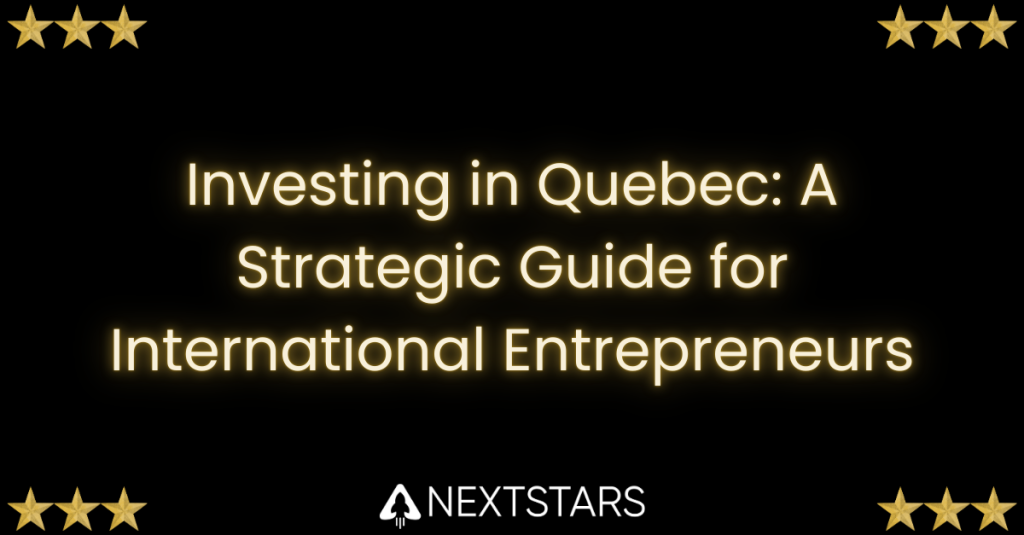Canada’s immigration policy doesn’t just favour youth or innovation—it values experience. Across the country, several provincial programs are specifically designed for business owners and senior executives who bring a proven track record, strategic insight, and the resources to make a real economic impact.
These aren’t startup accelerators. They’re structured entry points for entrepreneurs who’ve already built something—and are now ready to do it again in a new market.
A Clear Path for Those Who’ve Done the Work
These programs speak to individuals who’ve spent years navigating the complexities of business ownership or corporate leadership. They understand balance sheets, performance metrics, and market risk. What they’re looking for now is stability, a scalable opportunity, and permanent residency.
The model is straightforward: move to Canada on a work permit, invest in a business, run it actively, and qualify for nomination. For the right candidate, it’s less a leap of faith than a continuation of strategy.
Who These Programs Are For
These streams are designed for:
- Business owners with at least three years of active ownership experience
- Senior executives with four to five years in high-level management roles
- Applicants with a net worth of at least $500,000
- Individuals ready to invest between $200,000 and $600,000 into a business they will manage
These are not passive investor routes. Active involvement is expected—often backed by a performance agreement and job creation goals.
What Sets These Streams Apart
What makes these programs appealing to experienced professionals is how familiar they feel. While designed for immigration, their core mechanics are business-first:
- Substantial net worth requirements, often verified by a third party
- Clear investment thresholds, typically tied to local priorities
- Work permit first, followed by nomination after performance criteria are met
- Language expectations that reflect professional-level communication (usually CLB 4 or 5)
- A heavy emphasis on operational leadership, not just capital

This is immigration through execution—where outcomes drive the path to residency.
Program Snapshot
| Stream Name | Net Worth | Path Type | Language | Applicant Profile |
| BC – Entrepreneur (Base) | $600K | Work Permit First | CLB 4 | 3+ yrs owner or 4+ yrs senior manager |
| BC – Entrepreneur (Regional) | $300K | Work Permit First | CLB 4 | Experience required, community referral |
| Manitoba – Entrepreneur Pathway | $500K | Work Permit First | CLB 5 | 3+ yrs ownership/management, high school |
| New Brunswick – Business Stream | $500K | Work Permit First | CLB 5 | 3+ yrs owner/manager, $150K investment |
| Newfoundland – Int’l Entrepreneur | $600K | Work Permit First | CLB 5 | 2+ yrs owner or 5+ yrs manager, $200K investment |
| Nova Scotia – Entrepreneur | $600K | Work Permit First | CLB 5 | 3+ yrs owner or 5+ yrs manager, high school |
| PEI – Work Permit Stream | $600K | Work Permit First | CLB 4 | Age 21–59, business experience, high school diploma |
| Saskatchewan – Entrepreneur | $500K | Work Permit First | Not Spec. | 3+ yrs experience, $200K–$300K investment |
| Yukon – Business Nominee Program | $500K + $300K liquid assets | Work Permit First | CLB 4 | 3 yrs business + 5 yrs work exp, high school |
| NWT – Business Stream | $500K (YK) / $250K (outside) | Work Permit First | CLB 4 | Experience required, regional development focus |
What You’ll Need to Compete
These programs are selective but transparent. Most will ask for:
- A verified net worth assessment
- A business plan that aligns with provincial priorities
- A commitment to operate the business actively
- Minimum ownership levels (often 33% or more)
- A performance agreement outlining key outcomes before nomination
Why These Streams Make Strategic Sense
For applicants with business experience and capital, these programs offer something rare in the global immigration landscape: a predictable, performance-based path that rewards what you already know how to do. It’s not about reinvention—it’s about building again, this time in Canada.
The next article in this series focuses on a different kind of entrepreneur: those bringing disruptive ideas, tech-first models, and startup energy.





